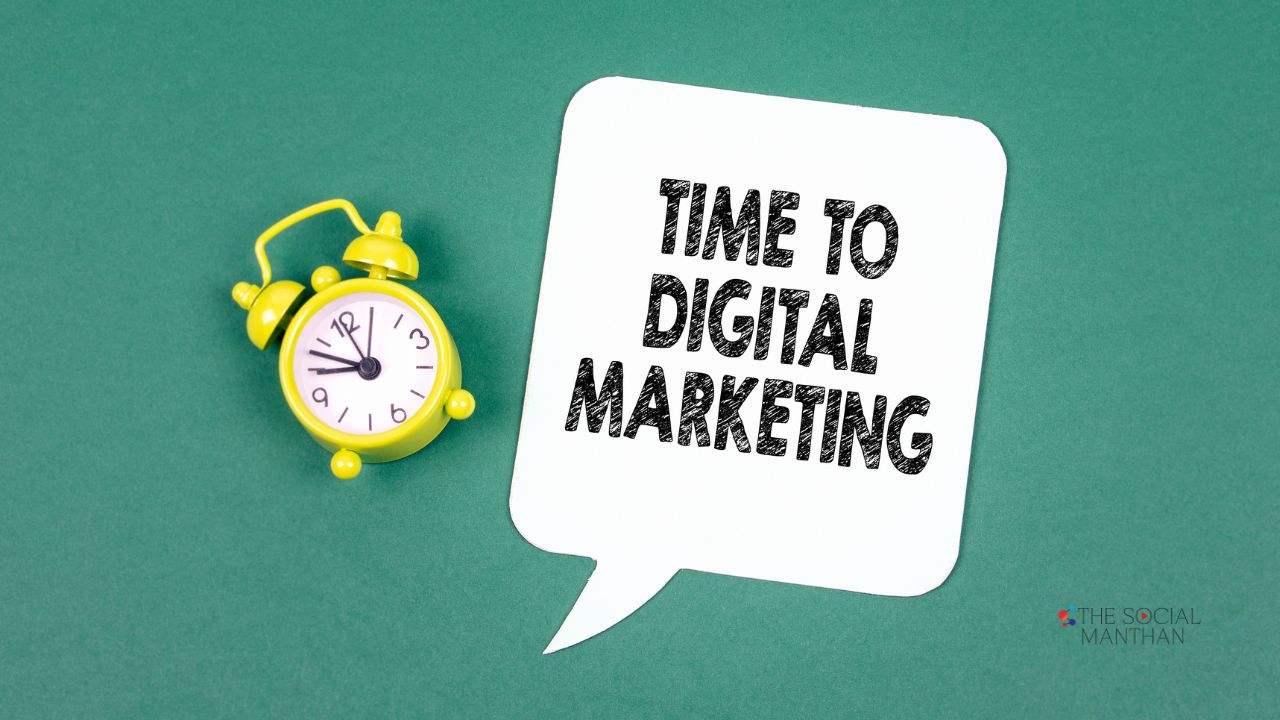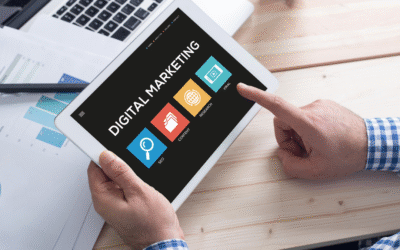Digital marketing plays a pivotal role in today’s business landscape, and I often find myself recommending it to anyone seeking to maximize their reach. You might wonder whether investing time and resources into digital marketing is worthwhile. In this post, I will investigate into the various benefits of digital marketing, and how it can elevate your brand’s presence, enhance customer engagement, and ultimately lead to increased sales. Let’s explore the key advantages together and see how this approach could transform your marketing strategy.
Understanding Digital Marketing
For anyone looking to promote their business or brand, understanding digital marketing is imperative in today’s tech-driven world. It encompasses a wide range of online strategies and platforms, allowing you to connect with your audience in ways that traditional marketing often cannot. From social media to email campaigns, digital marketing is about leveraging technology to create impactful relationships with potential customers.
Definition and Scope
Behind digital marketing lies a comprehensive approach to reaching audiences through various online channels. It spans multiple tactics and techniques, including search engine optimization, content marketing, social media, and pay-per-click advertising. Each of these components aims to enhance visibility, engagement, and ultimately, conversions in the digital landscape.
Key Components
About digital marketing, several key components work together to form an effective strategy. These include content creation, search engine optimization (SEO), social media marketing, and email marketing. Each component interacts with the others, ensuring a cohesive approach that maximizes your reach and resonates with your target audience.
Understanding these key components is imperative for building your digital marketing strategy. Content creation serves to engage and inform your audience, while SEO helps enhance your visibility on search engines. Social media marketing allows you to connect with your audience on platforms they frequent, fostering relationships and encouraging shares. Meanwhile, email marketing enables direct communication with your audience, nurturing leads and turning them into customers. By integrating these elements thoughtfully, I can create a comprehensive digital marketing plan that drives results.
Advantages of Digital Marketing
While traditional marketing methods were effective in their time, digital marketing offers a multitude of advantages that can significantly enhance your business performance. One of the most notable benefits is its ability to reach a global audience quickly and efficiently. With the right strategies, you can engage with your target market in real-time, making it easier to adjust your approach based on their responses and preferences.
Cost-Effectiveness
Digital marketing encompasses various strategies that are often more affordable than traditional methods. I have found that platforms like social media and email marketing allow you to reach potential customers without breaking the bank. This budget-friendly approach enables you to maximize your return on investment, which is necessary for any growing business.
Targeted Reach
For businesses today, reaching the right audience is more important than ever. Digital marketing allows you to define and target your ideal customer segments with remarkable precision. By using analytical tools and demographic filters, I can tailor my marketing efforts to those who are most likely to engage, ensuring that my content resonates and drives results.
At the heart of targeted reach is the ability to analyze consumer behavior and preferences. By leveraging data analytics, I pinpoint specific audiences based on age, location, interests, and online activity. This focused approach not only enhances engagement but also increases conversion rates, allowing you to allocate resources more effectively and improve overall campaign performance.
Challenges of Digital Marketing
Some of the main challenges I face in digital marketing include keeping up with emerging technologies, algorithm changes, and audience demands. As the digital landscape evolves, strategies that once worked may become obsolete, requiring continuous adaptation. Additionally, the need for a multifaceted approach can be overwhelming, making it imperative to disrupt traditional marketing tactics and find innovative ways to engage your audience effectively.
Rapidly Changing Landscape
By nature, digital marketing is dynamic and fast-paced. New platforms emerge, trends shift, and consumer behavior evolves rapidly. It’s vital for you to stay informed about advancements in technology and marketing strategies to ensure your campaigns remain relevant and effective.
Competition and Saturation
Challenges arise as the digital marketing landscape becomes increasingly competitive and saturated. Many businesses are competing for the same audience, leading to higher costs and a need for more creative strategies.
A saturated market can make it difficult for your brand to stand out, as numerous companies vie for attention. With so many similar products and services available, you must differentiate your offering through unique value propositions and effective storytelling. Investing time in understanding your audience’s preferences and refining your approach can help you carve out a niche and find success amidst the competition.
Measuring Effectiveness
Keep in mind that measuring the effectiveness of your digital marketing efforts is imperative to understanding your return on investment. By evaluating various metrics, you can pinpoint what’s working well, what’s not, and make informed adjustments to your strategies. This not only aids in optimizing your campaigns but also enhances the overall impact of your marketing activities.
Key Performance Indicators (KPIs)
Effectiveness in digital marketing can be measured through specific Key Performance Indicators (KPIs) that align with your goals. These may include metrics such as conversion rates, click-through rates, and customer engagement levels, all serving as indicators of your campaign’s performance. By regularly analyzing these KPIs, you can track your progress and adapt your strategies accordingly.
Tools and Analytics
To effectively measure your digital marketing efforts, it’s imperative to utilize the right tools and analytics platforms. These resources help you gather data on user behavior, traffic sources, and engagement metrics, allowing for informed decision-making.
Tools like Google Analytics, SEMrush, and HubSpot offer comprehensive reporting features that can help you analyze your campaigns in real time. By setting up tracking features, you can gain insights into your audience’s behavior, identify trends, and uncover areas for improvement. These analytical tools empower you to make data-driven decisions, ensuring that your digital marketing investments yield the best possible outcomes.
Best Practices for Success
Now that I’ve highlighted the importance of digital marketing, let’s explore some best practices for driving success. Establish clear goals and invest in data analysis to track performance. Staying up to date with trends, continuously learning, and adapting your strategies will ensure you remain competitive. Utilizing the right tools for automation and optimization can streamline your processes and maximize your outreach efforts.
Audience Engagement
At the heart of effective digital marketing lies genuine audience engagement. I focus on understanding your target audience’s preferences and behaviors to tailor your marketing messages accordingly. Utilizing interactive elements like polls, quizzes, and contests can create meaningful connections, prompting consumers to share and relate to your brand.
Content Quality
Against the backdrop of digital marketing, high-quality content plays a significant role in achieving your objectives. Quality content not only attracts attention but also builds trust and authority in your industry. I emphasize the importance of creating valuable, informative material that resonates with your audience.
This means producing well-researched articles, engaging videos, and visually appealing graphics that are relevant to your audience’s needs. I aim to provide actionable insights and unique perspectives that encourage audiences to return to my content. Prioritizing original ideas and optimizing for SEO ensures that your content reaches the right people at the right time, ultimately boosting your brand’s visibility and credibility.
Future Trends in Digital Marketing
Many businesses are beginning to realize that digital marketing is continually evolving. Staying ahead of future trends can give you a competitive edge, and I believe embracing innovations like artificial intelligence, automation, and personalized marketing will be vital. As new technologies emerge, they will shape how we interact with consumers, making it vital to adapt strategies accordingly.
Emerging Technologies
An exciting aspect of digital marketing is the rapid development of emerging technologies. Innovations such as artificial intelligence and machine learning are transforming how I analyze data and connect with my audience. These technologies can enhance customer experience by providing tailored content and more efficient targeting, making them vital in modern marketing strategies.
Changing Consumer Behavior
Before exploring into the trends, it’s vital to understand how consumer behavior is shifting. Today’s consumers are more empowered and informed, often conducting extensive research before making purchasing decisions. This change requires me to adapt my marketing approaches to address their specific needs and preferences.
Hence, I’ve noticed that with increased access to information, consumers are becoming more selective and value-driven. They prioritize brands that align with their values and are responsive to their needs. Engaging with your audience through meaningful interactions, personalized content, and authentic communication will help you build lasting relationships. Adapting to these changes is vital for successfully navigating the evolving digital marketing landscape.
To wrap up
Following this, I can confidently say that engaging in digital marketing is highly beneficial for your business. It allows you to reach a broader audience, track your results in real-time, and adjust your strategies accordingly. I encourage you to embrace digital marketing if you want to stay competitive and connect meaningfully with your customers. By understanding your audience and effectively utilizing digital channels, you can enhance your brand visibility and drive growth.









